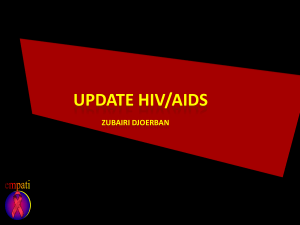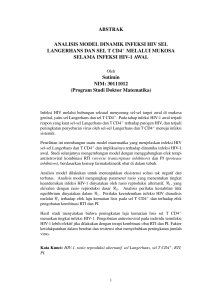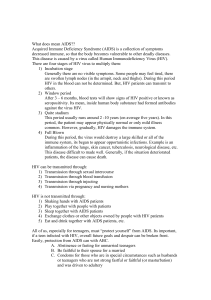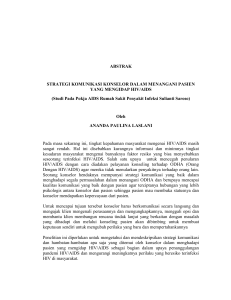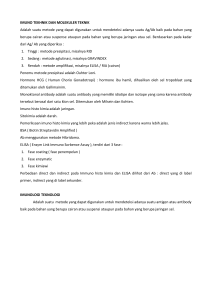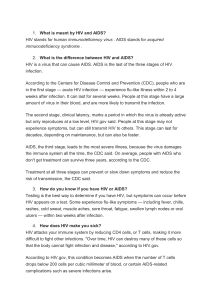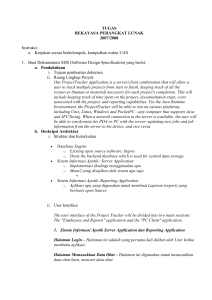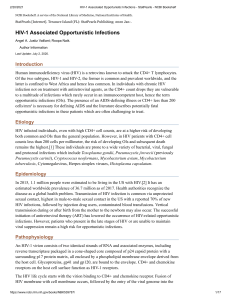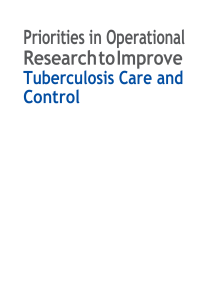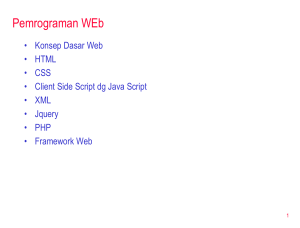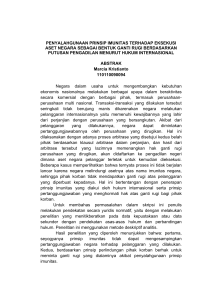Pemantauan Terapi ARV dan Penatalaksanaan HIV Fakultas
advertisement
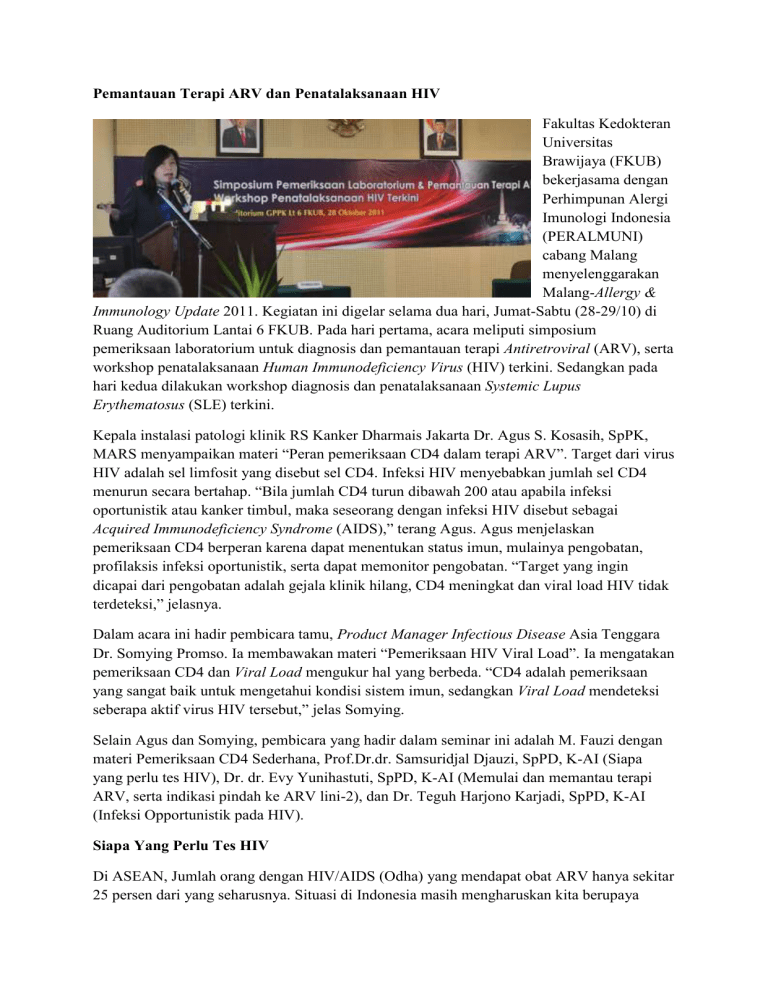
Pemantauan Terapi ARV dan Penatalaksanaan HIV Fakultas Kedokteran Universitas Brawijaya (FKUB) bekerjasama dengan Perhimpunan Alergi Imunologi Indonesia (PERALMUNI) cabang Malang menyelenggarakan Malang-Allergy & Immunology Update 2011. Kegiatan ini digelar selama dua hari, Jumat-Sabtu (28-29/10) di Ruang Auditorium Lantai 6 FKUB. Pada hari pertama, acara meliputi simposium pemeriksaan laboratorium untuk diagnosis dan pemantauan terapi Antiretroviral (ARV), serta workshop penatalaksanaan Human Immunodeficiency Virus (HIV) terkini. Sedangkan pada hari kedua dilakukan workshop diagnosis dan penatalaksanaan Systemic Lupus Erythematosus (SLE) terkini. Kepala instalasi patologi klinik RS Kanker Dharmais Jakarta Dr. Agus S. Kosasih, SpPK, MARS menyampaikan materi “Peran pemeriksaan CD4 dalam terapi ARV”. Target dari virus HIV adalah sel limfosit yang disebut sel CD4. Infeksi HIV menyebabkan jumlah sel CD4 menurun secara bertahap. “Bila jumlah CD4 turun dibawah 200 atau apabila infeksi oportunistik atau kanker timbul, maka seseorang dengan infeksi HIV disebut sebagai Acquired Immunodeficiency Syndrome (AIDS),” terang Agus. Agus menjelaskan pemeriksaan CD4 berperan karena dapat menentukan status imun, mulainya pengobatan, profilaksis infeksi oportunistik, serta dapat memonitor pengobatan. “Target yang ingin dicapai dari pengobatan adalah gejala klinik hilang, CD4 meningkat dan viral load HIV tidak terdeteksi,” jelasnya. Dalam acara ini hadir pembicara tamu, Product Manager Infectious Disease Asia Tenggara Dr. Somying Promso. Ia membawakan materi “Pemeriksaan HIV Viral Load”. Ia mengatakan pemeriksaan CD4 dan Viral Load mengukur hal yang berbeda. “CD4 adalah pemeriksaan yang sangat baik untuk mengetahui kondisi sistem imun, sedangkan Viral Load mendeteksi seberapa aktif virus HIV tersebut,” jelas Somying. Selain Agus dan Somying, pembicara yang hadir dalam seminar ini adalah M. Fauzi dengan materi Pemeriksaan CD4 Sederhana, Prof.Dr.dr. Samsuridjal Djauzi, SpPD, K-AI (Siapa yang perlu tes HIV), Dr. dr. Evy Yunihastuti, SpPD, K-AI (Memulai dan memantau terapi ARV, serta indikasi pindah ke ARV lini-2), dan Dr. Teguh Harjono Karjadi, SpPD, K-AI (Infeksi Opportunistik pada HIV). Siapa Yang Perlu Tes HIV Di ASEAN, Jumlah orang dengan HIV/AIDS (Odha) yang mendapat obat ARV hanya sekitar 25 persen dari yang seharusnya. Situasi di Indonesia masih mengharuskan kita berupaya meningkatkan Odha memperoleh obat ARV dan di sisi lain juga harus menemukan infeksi HIV pada stadium dini. Divisi Alergi-Imunologi Klinik Departemen Ilmu Penyakit Dalam FKUI/RSCM Jakarta Prof. DR. dr. Samsuridjal Djauzi, SpPD, K-AI mengatakan, “Dari sekitar 5600 Odha yang berobat di RSCM sekitar 80 persen sudah dalam masa gejala atau CD4 dibawah 200”. “Dengan demikian ada dua tugas utama petugas kesehatan yaitu mendorong masyarakat untuk menjalani tes HIV dan meningkatkan kepedulian agar diagnosis HIV dapat ditegakkan secara lebih dini”, ujar Samsuridjal. Di Indonesia baru sekitar 100 ribu penduduk yang melakukan tes HIV padahal estimasi orang yang terinfeksi HIV di Indonesia mencapai 300 ribu orang. Dengan penduduk sekitar 240 juta orang tidak mudah bagi Indonesia melakukan tes HIV pada seluruh penduduknya. “Karena itu kita perlu menganjurkan tes HIV bagi pasangan Odha, pengguna narkoba suntikan, penderita Penyakit Menular Seksual, penderita penyakit Tuberkulosis, ibu hamil, anak yang lahir dari ibu hamil positif HIV, serta mereka yang berminat untuk tes HIV”, jelas Samsuridjal. Sudah tentu peningkatan jumlah orang yang tes HIV harus disukung oleh tindak lanjut untuk dukungan diagnosis dan terapi ARV. “Untunglah sampai saat ini pemerintah Indonesia masih terus menyediakan obat ARV gratis untuk masyarakat yang memerlukannya”, pungkasnya. [mit] Monitoring ARV Theraphy and HIV Management Medical Faculty of Universitas Brawijaya (FKUB) cooperates with Immunology Allergy Association of Indonesia (PERALMUNI) local Malang held Malang-Allergy & Immunology Update 2011. This event was conducted for two days, Friday to Saturday (2829/10) in Auditorium Room of 6th Floor FKUB. On the first day, the event included symposium of laboratory check to diagnose and monitor Antiretroviral (ARV) theraphy, also a workshop of the latest Human Immunodeficiency Virus (HIV) management. While on the second day, there was a workshop of the latest Systemic Lupus Erythematosus (SLE) diagnose and management. The Head of clinical pathology installation Dharmais Cancer Hospital Jakarta, Dr. Agus S. Kosasih, SpPK, MARS, stated “The Examination of CD4 in ARV theraphy”. The target of this virus is lymphocyte cell which is called CD4. HIV infection causes the number of CD4 cell decrease gradually. “If the number of CD4 decreases below 200 or if the opportunistic infection or appears a cancer, then someone with HIV infection is called as Acquired Immunodeficiency Syndrome (AIDS), “ explained Agus. Agus explained that the examination of CD4 had a role because it can determine the immune status, starting from medication, prophylaxis of opportunistic infections, as well as to monitor treatment. “The target that wants to be achieved from medication is the missing of clinical symptoms, CD4 cell increases and HIV viral load undetectable," he explained. In this event, attended as the guest speaker, a Product Manager of Infectious Disease South East Asia, Dr. Somying Promso, who presented "Examination of HIV Viral Load". He said the examination of CD4 and Viral Load measure different things. "CD4 is a very good examination to determine the condition of immune system, while the viral load detects how active is HIV virus," explained Somying. In addition to Agus and Somying, other speakers who attended this seminar were M. Fauzi with CD4 Simple Examination, Prof. Dr. dr. Samsuridjal Djauzi, SpPD, K-AI (Who needs an HIV test), Dr. dr. Evy Yunihastuti, SpPD, K-AI (Initiate and monitor ARV therapy, as well as indications of moving into ARV line-2), and Dr. Teguh Harjono Karjadi, SpPD, K-AI (opportunistic infection in HIV). Who Needs HIV Test In ASEAN, the number of people with HIV/AIDS (Odha) who receives antiretroviral (ARV) drugs is only 25 percent than it should. The situation in Indonesia still requires that we work to improve Odha to get antiretroviral drugs and on the other side must also be found in the early stages of HIV infection. Division of Allergy-Clinical Immunology Department of Internal Disease Medical Faculty Universitas Indonesia/RSCM Jakarta, Prof. DR. dr. Samsuridjal Djauzi, SpPD, K-AI said, "Of the approximately 5600 Odha(s) who do medication in RSCM is about 80 percent had in a period of symptoms or CD4 belows 200". "Thus there are two main tasks, to encourage community health workers to undergo HIV test and increase awareness of HIV diagnoses in order to be enforced early", said Samsuridjal. In Indonesia, it is only around 100 thousand people who have HIV test, whereas the estimation of people who are infected with HIV in Indonesia reach 300 thousand people. With a population of about 240 million people, it is not easy for Indonesia to do HIV test on the entire population. "Therefore we need to encourage HIV test for couples living with HIV, injection drug users, people with Sexually Transmitted Diseases, Tuberculosis disease patients, pregnant women, children who are born from pregnant women with positive HIV, as well as those who are interested in HIV test," explained Samsuridjal. Certainly an increased number of people who have HIV test should be continued by follow-up to support the diagnosis and antiretroviral therapy. "Fortunately, until now the Indonesian government continues to provide free antiretroviral drugs to people who need it," he concluded. [mit/ps2]
